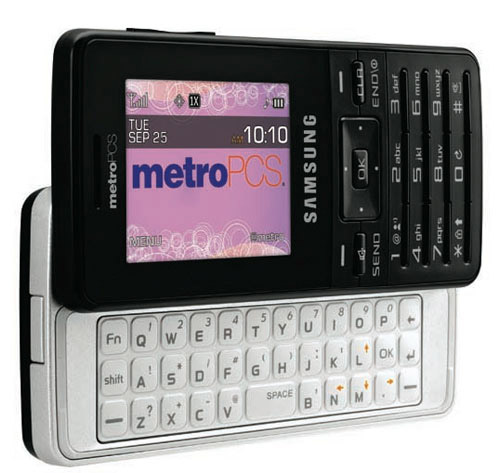 MetroPCS Communications Inc. said Monday that it added 249,000 net subscribers in the third quarter, a sign that the low-cost wireless carrier is benefiting from customers tightening their belts and cutting their land lines.
MetroPCS Communications Inc. said Monday that it added 249,000 net subscribers in the third quarter, a sign that the low-cost wireless carrier is benefiting from customers tightening their belts and cutting their land lines.Releasing highlights from its third-quarter earnings ahead of time, the Dallas-based company said it ended the quarter with 4.8 million subscribers, up from 3.7 million a year earlier. Customer turnover, or churn, fell to 4.8% from 5.4%.
MetroPCS has prereleased some of its results for the past two quarters in an effort to stand out from the crowd as the economic downturn pressures telecommunications providers. "There's been so much concern about the macroeconomic environment and its impact on wireless," said J. Braxton Carter, the company's finance chief. "We felt it was really important to get out there as quickly as possible with our numbers."
The carrier's customer gains were greater than many analysts expected, particularly as wireless-subscriber growth has slowed in the U.S. The company, which offers low-cost, prepaid cellphone plans and VOIP phones, has been expanding into new areas, including Philadelphia, and recently announced a roaming pact with fellow regional provider Leap Wireless International Inc.
As people drop their home phones and pricier wireless subscriptions, said Romeo A. Reyes, a telecom analyst at Jefferies & Co., they are opting for less-expensive offerings from carriers such as MetroPCS. "There's definitely a 'trade-down' going on in telecom," he said.
In June, MetroPCS launched MetroFlash, which allows people to reactivate some types of non-MetroPCS cellphones on its network. The initiative helped the company gain subscribers, but not without controversy. Virgin Mobile USA Inc., another prepaid carrier, sent a cease-and-desist letter to MetroPCS in July, saying that "reflashing" Virgin-branded cellphones would violate trademarks and tamper with its customer agreements.
MetroPCS responded with a pre-emptive lawsuit in September. Mr. Carter said that MetroFlash isn't targeting competitors and that customers are required to sign a statement that they own the phone before it is added to the network.
"We feel very strongly that what we're doing is right for consumers, that nothing we're doing is inappropriate for the marketplace," he said.
A Virgin Mobile spokeswoman said the company will "vigorously" contest the suit.
By: Andrew Lavallee
Wall Street Journal; October 7, 2008
